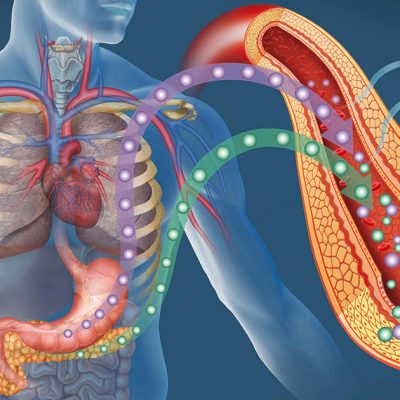Healthy living is something you want to maintain over weeks, months and years. Willpower alone won’t get you there. Here are some tips and principles for making healthy living natural and sustainable.
Healthy Living Challenge
Everybody knows that you need to eat right, exercise and take time for ourselves. But knowing what good health requires doesn’t necessarily translates easily into action.
Years or decades often go by with dietary and lifestyle problems cruising along below our radar, showing up only once discomfort, disease or enhanced awareness bring them into the limelight. And still, it is hard to change.
The reasons are not hard to fathom. Our love of certain foods often takes root during childhood, long before we know or care about their nutritional value. And we don’t relinquish our pleasures lightly. Nothing predicts failure like the grim anticipation of feeling deprived.
Healthy living is not just an exercise in abstinence. It’s about feeling better, looking better and living longer with more energy and vitality. Once you experience the rewards of a wholesome diet, perilous treats lose some of their appeal.
Unfortunately, the world we live in rarely encourages exercise or good nutrition. Time pressures lead parents, children and working people to fast food, which is almost always unhealthy. It takes real effort to buy, prepare and eat healthy foods and still find 30 minutes a day to do something physical.
Tips for Maintaining a Quality Lifestyle
Although finding the time is hard to do, there are some tips to help make this endeavor easy, enjoyable and life-long.
1. Learn, learn, learn
Education is one of the best predictors of good health. Solid science leave ample room for uncertainty and disagreement, but some experts are more expert than others. The more you know, the easier it becomes to sort the useful advice from the flawed.
2. Set reasonable goals
A small but sustainable change is better than a large one relinquished after two weeks. Small changes can give you a sense of mastery, and you can build upon them.
3. Stay motivated
Instead of staying preoccupied with what you can’t eat, keep in mind what you’re shooting for. The first few weeks may be rough, but you’ll grow more secure as you experience the payoff. Over time, a healthy routine can feel as natural as an unhealthy one.
4. Become your own boss
Realise that this is your life and YOU must take the responsibility for changing it. People who feel a personal stake in their behavior are the most likely to initiate changes and maintain them. Become the master of your own domain!
5. Find and get the support you need
Figure out the kind of support you want, and ask for it. Figure out the kind of support you don’t want, and ask for it to stop. Remind those that badger you what the research shows: changes in diet and exercise are motivated by your own wishes and are rarely encouraged by nagging.
6. Relax
Stress, anxiety and depression can stop you before you start; practice some deep breathing, yoga, and/or meditation daily and take time to relax each day. If you feel professional help is what you need to get you started, find it. Remember, optimal health requires body, mind and spirit.
Living healthfully can be an experience to be enjoyed and relished with a couple shifts in attitude and perspective. And it all starts with a will to change.
Holistic Approach to a Healthy Weight
Weight control: everybody talks about it, everybody wants to do it, and many people are dying to achieve it. Why is weight loss in particular so complicated? Why doesn’t one program work for everybody? How can you lose weight and maintain or even increase your overall level of health?
Let’s look at these questions a little bit more and find out!
Multiple Factors Determine Your Habits
Weight loss, like any function in the body, is a complicated mix of neurological, biochemical and physiological processes that must work together in a specific sequence in order for you to lose weight.
Most diets and dietary programs assume that all you must do is tell somebody to eat less and they will lose weight. Anyone that has tried any conventional diet currently out there knows exactly how effective this is! In fact, less than 10 percent of people that actually do lose weight keep it off with conventional diets. No wonder we are all starving for a real way to lose weight (pun intended).
Individual Challenges
Because weight loss is so dependent on your unique body chemistry and biochemical make-up, no one diet could possibly work for everyone. In fact, no one diet will work for any TWO people with the same results. That’s a pretty bold statement, but take a moment and think about it. No two people are alike in the biochemical or physiological make-up, not even identical twins. So how could a diet possibly have the same results on any two people? The answer is that it can’t.
So how do YOU lose weight? You must find a program that takes into account your unique body chemistry AND addresses all the root causes that prevent you from losing weight.
You see, weight loss is not just a physical phenomenon. Yes, the scale tells a story (and it’s pretty loud sometimes), but there are many other physical and non-physical aspects to losing weight. Our feelings, attitudes, self-esteem, social interactions and emotions all play a role in our ability to lose weight and feel good about it. And they are just as important as how much you eat or exercise.
To truly lose weight and obtain optimal health you MUST follow a program that addresses your entire being, from eating the correct balance of foods to help you rebalance your body chemistry, to addressing any pre-formed emotional blocks to weight loss or body-image, to designing an exercise program that you can and will do.
Weight loss is not difficult if you uncover and address the root causes that are keeping you from your goal weight and get the help and guidance you need along the way. Once you do, you will be able to enjoy the journey along the natural path to better health.









